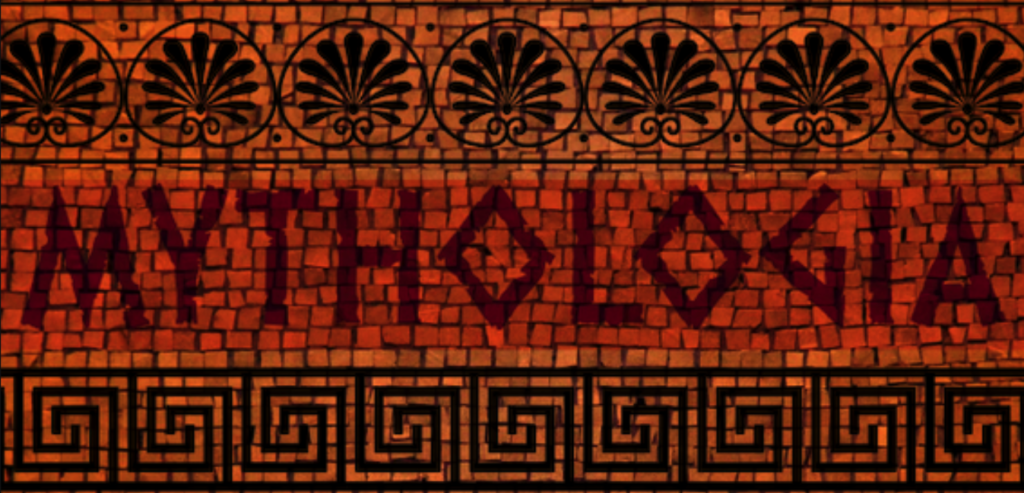
Greetings Readers and History-Lovers!
After a long Summer break, we’re finally back on the blog to bring you more entertaining information, topics of conversation and, of course, more books!
I hope that this post finds you all happy and safe, despite the ongoing crises plaguing our world.
During the past several months, I’ve been busy delving into worlds of gods, goddesses and heroes. What better way to get a respite from the modern world and its troubles than to explore Greek and Roman mythology?
And what an escape it has been!
I’ve always enjoyed mythology, and as I’ve grown older and begun to write my own stories, I’ve realized that it would be wonderful to retell many of these fabulous myths in a way that would allow us to get to know these gods, goddesses, and heroes on a more personal level.
The goal with the Mythologia series from Eagles and Dragons Publishing is to re-create a mythical world in which the reader can suspend all disbelief and experience these epic tales in a new and exciting way, right alongside the immortals and demigods whom we have read and heard about for ages.
This series is also a lot of fun for me to write, because anything goes. I don’t need to be constrained by historical timelines or detail as much as with other series, though I always make an effort to set the stories in their known, geographical locations. You can’t keep a good historian down! I get ideas from the seeds and scattered mentions by ancient authors in various texts, and then let my imagination run wild.
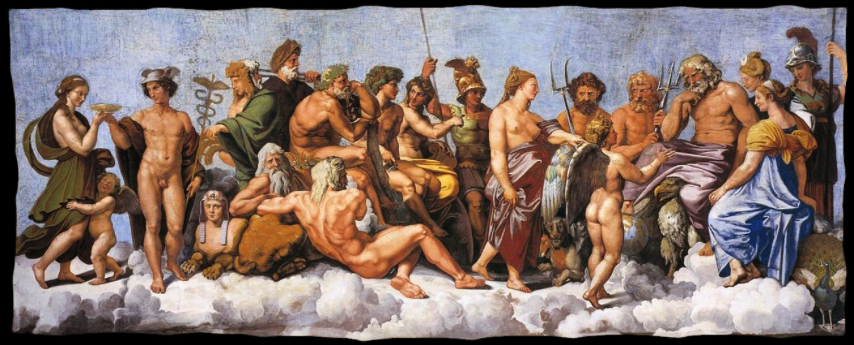
The Council of the Gods by Raphael, c.1517, Villa Farnesina, Rome
Why mythology, and why now?
That’s a tricky question. I suppose that in the last year, during this modern plague, I’ve found comfort in mythology, a resonance in the stories that has helped me to get through in some way.
This series was always intended to be an escape, an exercise in the suspension of disbelief. This past year seemed like the perfect time for that.
However, it is also worth mentioning that even though myth is comprised mostly of stories of gods, goddesses, and heroes, those stories deal with very human feelings and trials which we all face in one form or another. They are stories of love and loss, of hope and of deep fear. They are stories of jealousy, of curiosity, of wanting to belong and of wanting to be better than ourselves.
The Gods know we’ve all faced our share of challenges in the last year and a half or so. That is part of the reason for which I have gone back to the Mythologia series. It has comforted and inspired me.
I also just love mythology as a religious and storytelling tradition that has spanned ancient Greek and Roman culture. It’s the very foundation of epic storytelling in the West.
The Mythologia series can be read in any order, but the first book, Chariot of the Son, deals with the Phaethon myth.
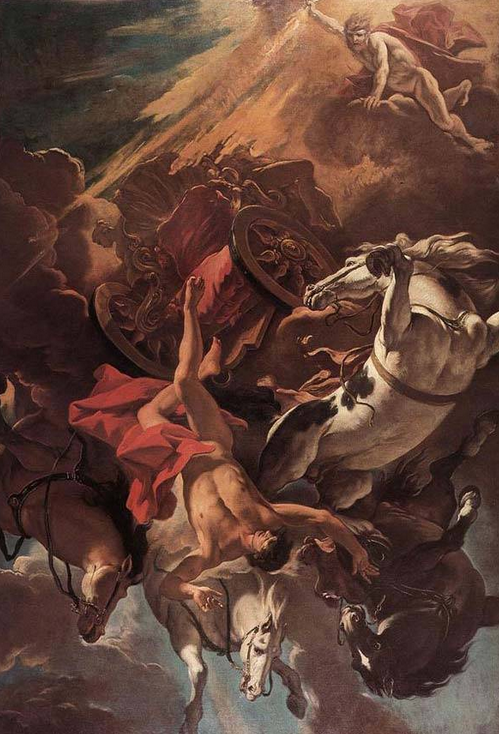
The Fall of Phaethon (Sebastiano Ricci 1659-1734)
He [Zeus] recalled the Fate [Moira] foretold a time when sea and land and heaven’s high palaces in sweeping flames should burn, and down should fall the beleaguered bastions of the universe.
(Ovid, Metamorphoses 1. 252)
Why the Phaethon myth?
I forget what I was researching at the time, but I came across a description of one version of the tale and remember being really saddened by it. I felt strongly that this was a story that I could tell, a story that would be extremely moving for readers of all ages.
There are a few versions of the Phaethon myth, including Hesiod’s Theogeny of the 8th or 7th century B.C., and versions by Apollodorus and Pausanias in the second century A.D. In these, Phaethon is often the son of Eos and Kephalos.
The version that touched me the most is by the Roman poet Ovid (43 BC – AD 17/18) from Book II of his work, Metamorphoses. This work is a continuous narrative of myths in fifteen books which has shaped much of our view of mythology to this day.
You can download a free version of Ovid’s Metamorphoses on the Project Gutenberg website HERE.
With Chariot of the Son, I wanted get to know the people who, unbeknownst to Phaethon, make up the family – Clymene and Helios, his parents, an Oceanid and a Titan; his sisters, the Heliades; the Titan Prometheus, and others.
Also, knowing that the story has a tragic end, I wanted to get inside this young god’s heart and mind to try and experience the reasons why he wanted so much to drive the Sun’s chariot across the heavens.
As I thought about his burning chariot and the scorching of the world that created the Sahara desert, it occurred to me that this story has some very human themes such as wanting to belong, the need for love and approval, and the urge to prove oneself.
It is also a myth that is not often explored, and so I set out to tell it as I saw it. I hope I have done this tragic tale justice.
We are, after all, reminded of Helios and Phaethon when we look up at the sun in the daytime sky, or see a picture of the burning expanse of the Sahara desert.

The Sahara Desert – Created by the burning of the world when Phaethon drove his father’s chariot

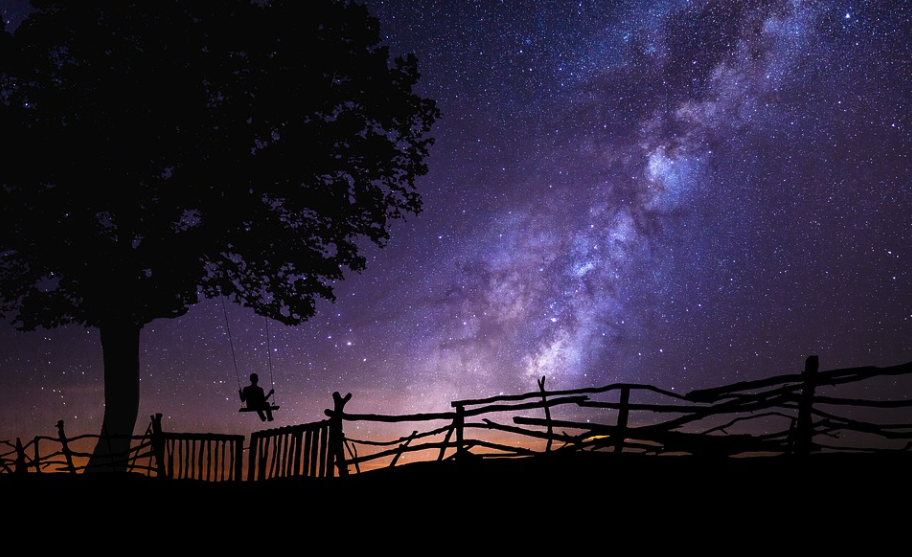

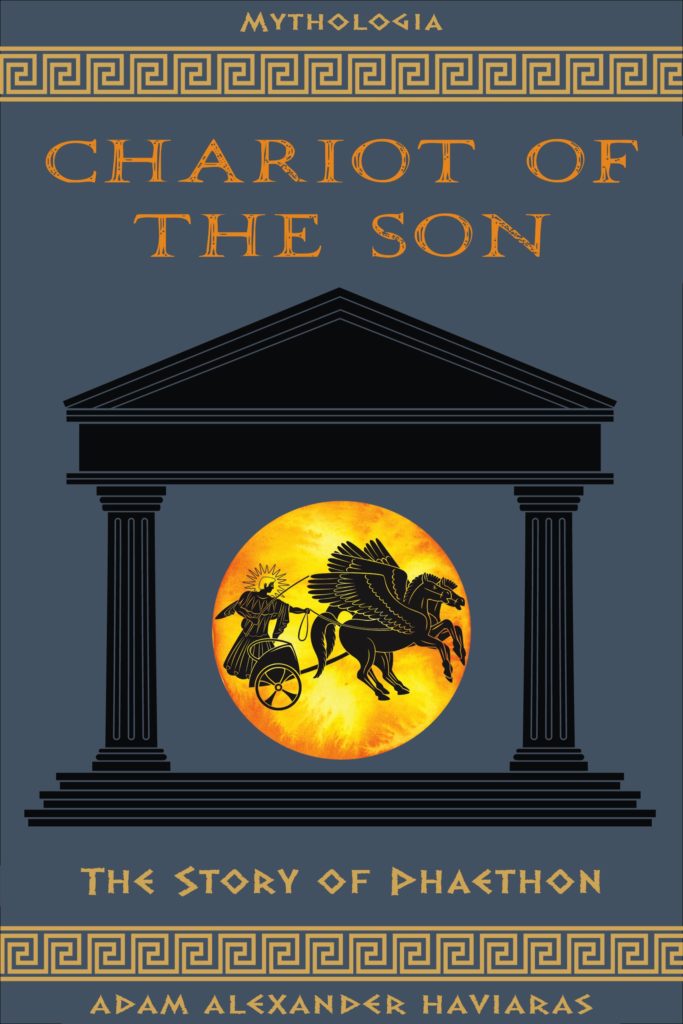
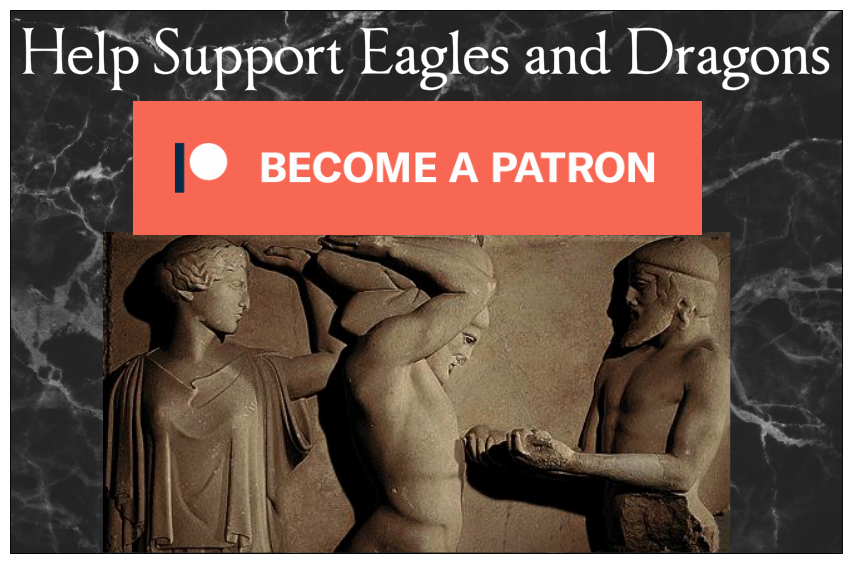
Welcome back Adam, I hope you are feeling much more refreshed. It must be so exhausting keeping up with all your wonderful books as well as your blog.I know I speak for others in saying we all appreciate it. Regards to family
Thank you for the very kind words, Rita. Yes, feeling refreshed and enjoying the research for the next book very much. Leave to history to pick us up! 😉 Hope all is well with you. Cheers!